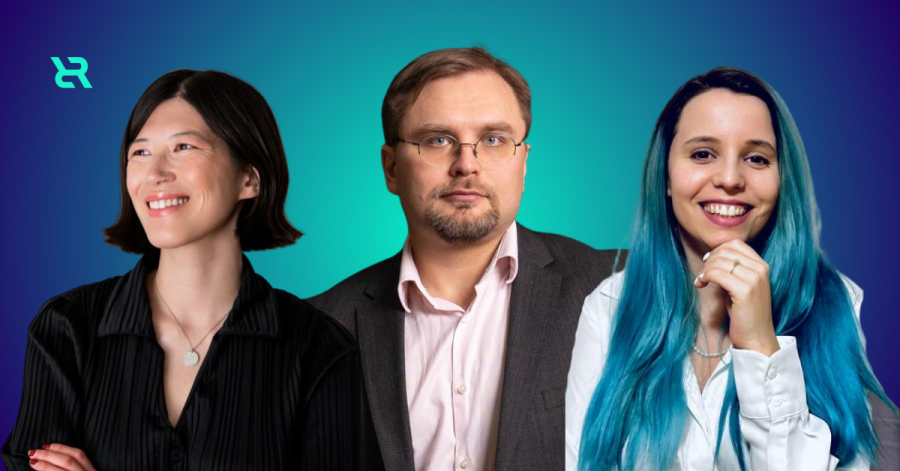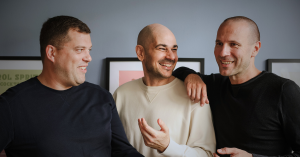The path of a startup founder is famously lonely, but for those with an idea and no one to build it with, it can feel impossible. The common hurdles are always the same: no technical co-founder, no development skills, and no clear starting point.
Budapest-based innovation hub Winno, is proposing a solution: what if your first co-founder wasn’t human at all?
Now launching its third batch of online acceleration program for tech startups – My Roboteam, the program is designed specifically for solo entrepreneurs, both non-technical and developers alike, who are struggling to take that first step. It guides individuals from an initial concept to a working prototype, teaching them how to leverage artificial intelligence as a junior partner.
The goal isn’t to replace human ingenuity but to give non-developers the tools to build, test, and shape their ideas into something tangible enough to attract real team members or early-stage incubators.
Helping hand in the Machine
The idea came from a place of deep industry experience. Timofey Golovin, co-founder of Winno, has spent over a decade designing accelerator programs for venture funds, corporations, and universities. He consistently saw the same challenge: a shallow pool of well-formed early-stage projects.
“It takes a lot of effort for startup projects to appear, for founders to take a first step. And especially if you don’t have a ready-to-go team right beside you.”
When ChatGPT first emerged, Golovin was initially underwhelmed, seeing a “huge contrast between hype… and a real result.” But then, a different perspective clicked. Instead of expecting a fully conscious employee, he began treating AI like “a lazy, dumb and immature intern, for whom you need to explain things very carefully and double check it.”
With that framing, he realized you could get good results. “And can an intern be your co-founder?” Golovin asks. “Well yes, especially on the first steps.” He combined this insight with his decade of experience in building accelerators to create MyRoboteam.
The program isn’t selling the myth that AI will do everything. Golovin is quick to point out that despite three years of rapid advancement, AI hasn’t killed professions as many predicted. A human touch remains essential. “Creativity is also about choosing the best option, and here AI can’t beat humans yet,” he explains. “It will offer something obvious.”
The real opportunity, he argues, is that AI, when used correctly, can become a powerful tool that helps a solo entrepreneur build a prototype, test an idea, and overcome the initial inertia that stops so many promising ideas from ever taking off.
Founders who have felt stuck
But does this AI-assisted approach work for founders on the ground? The experiences of the program’s alumni suggest it does.
Bernadett Molnár, a 2023 alumnus, joined MyRoboteam after a negative experience with a developer left her app non-functional, costing her significant time and money. “After that experience, I realized that even when you have a strong business and marketing background, a lack of technical expertise can lead to unexpected challenges.”
For her, the program provided more than just AI skills. “It helped me bridge that gap by giving me the tools, structure, and support to better understand how AI fits into our ecosystem before we acquired a technical co-founder. In the program the mentors and framework they provided gave me the confidence to integrate AI more strategically into my entrepreneurial vision, and that made a difference in how I now lead and build,” she reflects.
Today, at her startup Berny, an educational platform, AI is a key operational player. It streamlines HR by managing repetitive tasks in teacher recruitment and helps with everything from onboarding to drafting marketing copy. In one instance, it turned hours of manual data reformatting into a task of a few minutes. However, Molnár is clear about its limits. “When it comes to the final educational content, AI can’t replace expert teachers,” she says.
Linda Du, a 2024 alumnus and founder of the financial planning tool Moola Money, faced a different hurdle: finding a full-stack developer who also understood financial modeling. After a month of fruitless searching, she took matters into her own hands. “Using Replit, I imported our data and built the first functional version of the financial engine within hours,” Du says. The “AI co-founder” didn’t just solve a technical problem; it accelerated her entire validation process.
Like Molnár, Du learned where to draw the line. For her, LLMs were excellent for rapid prototyping, but she cautions they cannot replace direct customer interaction. Spending a summer manually building financial models for early users gave her deep insights that an AI never could have. “Those relationships became the foundation for our early community,” she says. “The human layer of feedback was irreplaceable.” She also learned a crucial lesson in branding when AI-generated visuals were perceived by users as “uncanny,” forcing a return to authentic design to build the trust essential for a financial product.
The practical details
MyRoboteam offers a structured, four-week journey designed to turn an idea into a tangible project. The program is free and conducted online.
-
- Week 1: Participants learn how to partner with AI, treating it as a junior co-founder to brainstorm and research ideas.
- Week 2: The focus shifts to business fundamentals, including lean startup principles, customer development, and hypothesis testing.
- Week 3: Founders build a prototype. This ranges from using no-code website constructors to new techniques like “vibe coding” for non-coders.
- Week 4: The program covers the basics of startup finance and using AI to generate a compelling pitch deck.
The curriculum is constantly evolving with the technology. “If two years ago, it was a dumb junior level intern, whom you needed to check all the time, now – it can play as co-founder, still junior one, but capable of actually doing things,” Golovin says. “No excuses for those who don’t know how to start and with whom – the answer is here.”
Ultimately, the program offers a blueprint for anyone with a good idea and the drive to see it through, proving that in 2025, you no longer need a packed rolodex or a computer science degree to start building.







